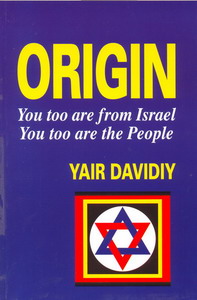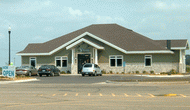Psalms 116
|
Brit-Am Discussion Group |
Contents by Subject |
Research Revelation Reconciliation |
Site Map Contents in Alphabetical Order |
This Site |
||
Psalms 116
[Psalms 116:1] I LOVE THE LORD, BECAUSE HE HATH HEARD MY VOICE AND MY SUPPLICATIONS.
HE HATH HEARD. In Hebrew "yishma" in the future, i.e. because HE will hear.
I love God because I know in advance that HE will hear me and save me.
This verse may also be understood as S.R. Hirsch interpreted it, which we paraphrase as saying,
I LOVE THE VERY ACT OF CALLING TO GOD BECAUSE I KNOW GOD WILL HEAR ME.
[Psalms 116:2] BECAUSE HE HATH INCLINED HIS EAR UNTO ME, THEREFORE WILL I CALL UPON HIM AS LONG AS I LIVE.
[Psalms 116:3] THE SORROWS OF DEATH COMPASSED ME, AND THE PAINS OF HELL GAT HOLD UPON ME: I FOUND TROUBLE AND SORROW.
SORROWS. Hebrew "chevelay" which can mean "sorrows of" but it could also be interpreted (as popinted out by Yehudah Kiel in "Daat Mikra") as saying "the cords of" as if he was trapped in the net of the Angel of Death.
THE PAINS OF HELL. Hebrew "mistarai-sheol" i.e. troubles of the grave, or troubles of the underworld.
[Psalms 116:4] THEN CALLED I UPON THE NAME OF THE LORD; O LORD, I BESEECH THEE, DELIVER MY SOUL.
He was close to death, "one foot in the grave" and already on the verge of a departure experience when he called to God to save his life.
[Psalms 116:5] GRACIOUS IS THE LORD, AND RIGHTEOUS; YEA, OUR GOD IS MERCIFUL.
[Psalms 116:6] THE LORD PRESERVETH THE SIMPLE: I WAS BROUGHT LOW, AND HE HELPED ME.
THE LORD PRESERVETH THE SIMPLE. He may have been culpable and unprepared but God will have mercy. This expression is also frequently quoted out of its context to express the principle that "what you do not know will not harm you" or "ignorance is bliss".
BROUGHT LOW. Hebrew "daloti" from the root "DL" connoting "shallow, weak". This is probably the source of our English word "dull".
[Psalms 116:7] RETURN UNTO THY REST, O MY SOUL; FOR THE LORD HATH DEALT BOUNTIFULLY WITH THEE.
He tells his sould to be calm and to function as previously. God has delivered him and he may continue with his life.
[Psalms 116:8] FOR THOU HAST DELIVERED MY SOUL FROM DEATH, MINE EYES FROM TEARS, AND MY FEET FROM FALLING.
[Psalms 116:9] I WILL WALK BEFORE THE LORD IN THE LAND OF THE LIVING.
[Psalms 116:10] I BELIEVED, THEREFORE HAVE I SPOKEN: I WAS GREATLY AFFLICTED:
S. R. Hirsch suggests that here the Psalmist is speaking in the name of Israel and specifically Judah. The Jews believed and announced their belief despite the fact that they were much oppressed.
[Psalms 116:11] I SAID IN MY HASTE, ALL MEN ARE LIARS.
LIARS. Hebrew "Cazav" connoting "disappointment, falsehood, failure". Judah believed and was oppressed and attributed his misfortunes to human weakness and did not impute any lacking in the will of the Almighty.
[Psalms 116:12] WHAT SHALL I RENDER UNTO THE LORD FOR ALL HIS BENEFITS TOWARD ME?
[Psalms 116:13] I WILL TAKE THE CUP OF SALVATION, AND CALL UPON THE NAME OF THE LORD.
[Psalms 116:14] I WILL PAY MY VOWS UNTO THE LORD NOW IN THE PRESENCE OF ALL HIS PEOPLE.
[Psalms 116:15] PRECIOUS IN THE SIGHT OF THE LORD IS THE DEATH OF HIS SAINTS.
PRECIOUS. Hebrew "yakar" also connoting "expensive, rare". The verse may be undestood to say:
"It costs a great deal [i.e. is very difficult] in the eyes of the Almighty [to see] the death of his Holy Ones" and God therefore frequently saves them.
[Psalms 116:16] O LORD, TRULY I AM THY SERVANT; I AM THY SERVANT, AND THE SON OF THINE HANDMAID: THOU HAST LOOSED MY BONDS.
God has freed me. HE has delivewred me from saervitude to human weakness and sickness. I was like a slave to other matters and HE bought me for HIS own.
[Psalms 116:17] I WILL OFFER TO THEE THE SACRIFICE OF THANKSGIVING, AND WILL CALL UPON THE NAME OF THE LORD.
SACRIFICE OF THANKSGIVING. This sacrifice was called "Todah" which uin Modern hebrew means "Thank You". It was accompanied by wine mentioned above as THE CUP OF SALVATION [116:13].
[Psalms 116:18] I WILL PAY MY VOWS UNTO THE LORD NOW IN THE PRESENCE OF ALL HIS PEOPLE.
It was customary when in time of tribulation to make vows or promises that would be fulfilled if and when one was saved from the situation. Nowadays the Sages recommend against making such vows but some people still do so. If one makes a vow and later regrets it can usually be anulled but it can be complicated.
Solomon spoke harshly of those who made vows and did not pay them. They would have been better off not making any vows at all.
[The Preacher (Kohelet-Ecclesiastes) 5:4] WHEN THOU VOWEST A VOW UNTO GOD, DEFER NOT TO PAY IT; FOR HE HATH NO PLEASURE IN FOOLS: PAY THAT WHICH THOU HAST VOWED.
[The Preacher 5:5] BETTER IS IT THAT THOU SHOULDEST NOT VOW, THAN THAT THOU SHOULDEST VOW AND NOT PAY.
[The Preacher 5:6] SUFFER NOT THY MOUTH TO CAUSE THY FLESH TO SIN; NEITHER SAY THOU BEFORE THE ANGEL, THAT IT WAS AN ERROR: WHEREFORE SHOULD GOD BE ANGRY AT THY VOICE, AND DESTROY THE WORK OF THINE HANDS?
[Psalms 116:19] IN THE COURTS OF THE LORD'S HOUSE, IN THE MIDST OF THEE, O JERUSALEM. PRAISE YE THE LORD.
The House of God is in Jerusalem. This is the Place of the Temple and where the Temple will be rebuilt.
Pleased with what you read?
We do this because we believe in it and enjoy doing it.
Click Here to make an offering. |

|
You too are from Israel You too are the People Lost Tribes of Israel in the West. Main Biblical and Historical Points Summarized A fast-flowing, easy-to-read, well-presented overall view of the Scriptural and Historical evidence concerning the whereabouts of the Ten Lost Tribes of Israel in the world today. |
 |
Skewes Jewelry 
|
 |
 |
Home
